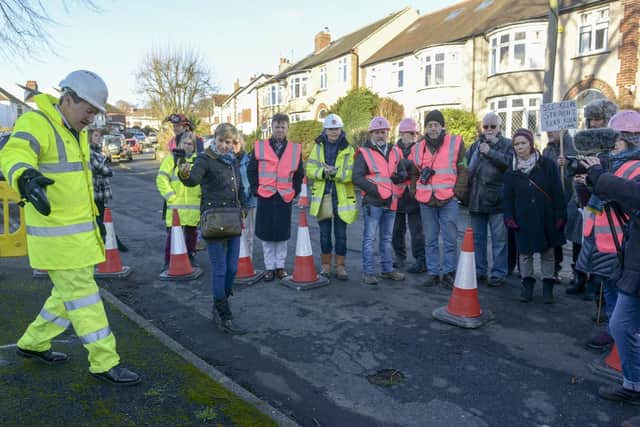Six more legal claims against police over Sheffield tree protests


Seven protesters will share the money, after reaching an out of court settlement over their claim for wrongful arrest and breach of the Human Rights Act 1998.
Calvin Payne, Simon Crump, Jeremy Peace, Paul Brooke, Gemma Lock, Kate Billington and Margaret Mark were arrested between November 2016 and February 2017, and held in custody for up to nine hours.


Advertisement
Hide AdAdvertisement
Hide AdThey were all detained under trade union legislation, which normally applies to workers on picket lines during strikes, but proceedings against them were dropped soon after.
The Independent Office for Police Conduct upheld appeals in August from six of those who were arrested, ruling the force had ‘no grounds’ to use those powers to make arrests and recommending ‘management action’ for three officers concerned.
One of the campaigners, Paul Brooke, said: “What I find astonishing is that South Yorkshire Police have not made any form of apology for our wrongful arrests.
“This was a deliberate act to prevent legitimate protest and was a violation of our very basic rights.”
Advertisement
Hide AdAdvertisement
Hide AdThe settlement followed a civil claim by the campaigners, who argued their human rights to peaceful protest had been breached. for damages
Iftikhar Manzoor, of Howells Solicitors, which represented them, said: “The importance of this outcome is a hope that lessons will be learnt by the police to avoid such unnecessary arrests in the future which were upsetting and stressful for my clients.”
There are still six outstanding claims against police, added Mr Manzoor, which he said were at an early stage.
The arrests were made after protesters took to standing close to trees earmarked for removal under the £2.2 billion Streets Ahead contract, to prevent them being felled by contractor Amey.
Advertisement
Hide AdAdvertisement
Hide AdTree felling was suspended for months during the long-running dispute but an agreement was eventually reached following talks between Sheffield Tree Action Groups (STAG), the council and Amey.
The operation resumed last month after the council and Amey agreed to look at new solutions to save more trees and invited STAG members to oversee new inspections to determine which trees could be kept.
Sheffield Council, which had felled 5,500 trees since 2012, argued they needed to be replaced as they were dead, diseased or decaying, were obstructing roads and pavements, or were dangerous.
But protesters claimed many healthy trees had been felled or were earmarked for removal despite simple engineering solutions being available to save them.
Advertisement
Hide AdAdvertisement
Hide AdSouth Yorkshire Police said in a statement: “Following the IOPC’s findings in relation to arrests made in connection with protests in Sheffield, South Yorkshire Police raised concerns over the final judgement.
“The upheld appeals were not based on an error in law and rightly, no officers were found to have a case to answer for misconduct.
“However, South Yorkshire Police took the view that as a result of the IOPC findings, and in order to minimise the potential further impact to the public purse, in addition to existing significant costs for policing the protests, settlement with those individuals affected by this matter was agreed.
“The decision in respect of these cases does not bind SYP for any future claims it receives, and each claim will be subject to an individual assessment.
“No formal apology was requested as part of the civil claim.”
